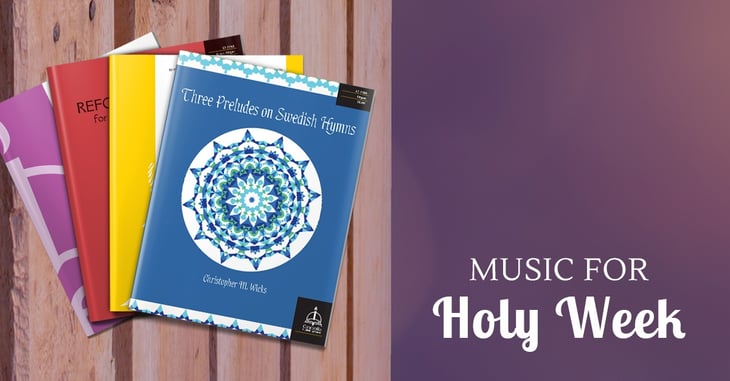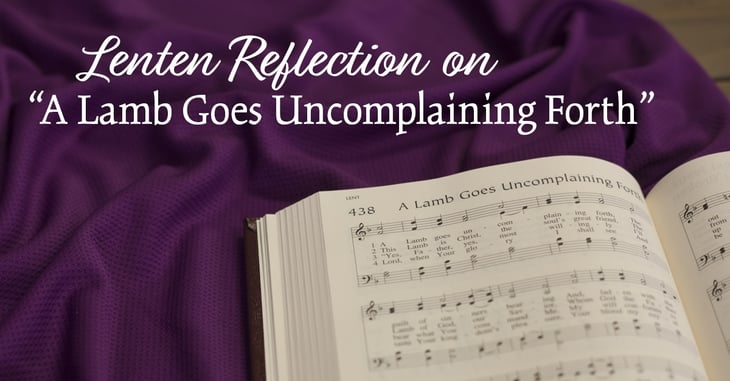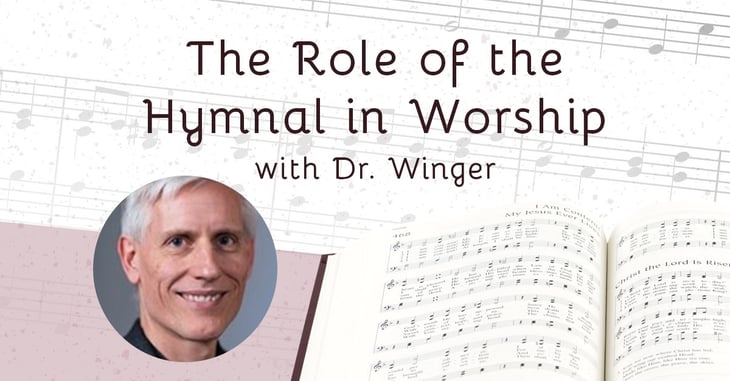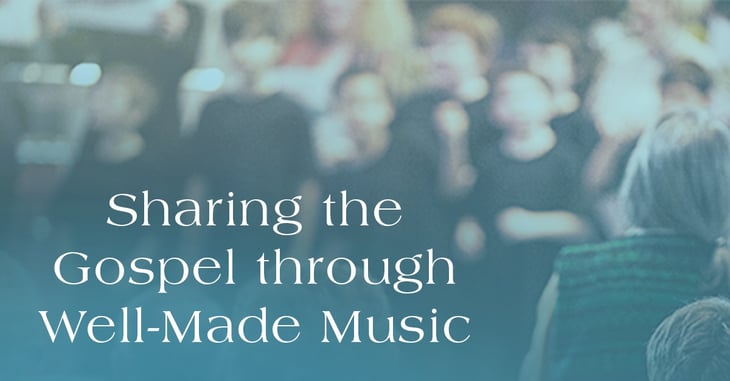Altar Guild’s Guide to the Types of Communion Vessels
The preparation of Holy Communion is a blessed and extremely significant act. Several types of sacred vessels and linens may be used, and practices can differ by congregation. Here is a guide to the most common types of Communion vessels to help you prepare for the distribution of the Lord’s Supper. The information in this post is adapted from What an Altar Guild Should Know by Paul H. D. Lang.
How Church Musicians Can Find Rest during Holy Week
One church musician cancels her piano lessons during Holy Week. Another decides not to travel to visit family during spring break because Holy Week is coming up too soon. The looks and brief conversations between church musicians during this time admit an exhaustion that accompanies this premier week of the Church Year.
Preparing for a Confirmation Service
Confirmation Sunday is an exciting day for the youth of your congregation. With all of the extra things and people to coordinate, though, it can be a challenge for church staff and volunteers. As you prepare for the day, here are some suggestions to help the event run smoothly.
Music for Holy Week
Holy Week is almost upon us! May God use that week to help you reflect on His great love for you, shown in the sacrifice of His Son to earn your salvation. Listen to the pieces below as part of your daily devotions during Holy Week, and encourage your members to use them in the same way. You can also use these pieces if you are still making last-minute additions to your worship music.
Training Kids to Be Church Musicians
As church musicians, we understand the necessity of training young people not only in music generally but in church music specifically. With all the talk of a lack of young church musicians, how do we begin to recruit the children in our own churches?
Reflection on “A Lamb Goes Uncomplaining Forth”
As the recently arrived Lent spurs Christians to reflect on their mortality and sinfulness, to give up vices, and to contemplate the suffering of Christ, we begin looking forward with great eagerness to Easter. While Lent may be a beautiful and necessary part of the Church Year, the solemnity of this time can sometimes turn discouraging. This year, I have turned to Paul Gerhardt’s text of “A Lamb Goes Uncomplaining Forth” (LSB 438) to seek comfort, assurance, and confidence in the hope of the resurrection.
Rev. Dr. Thomas Winger on the Role of the Hymnal in Worship
As a musician, pastor, and liturgy committee member for Lutheran Service Book, Rev. Dr. Thomas Winger has a unique and informed perspective on how music functions in the liturgy. We recently interviewed him to learn about his new book, Lutheranism 101: Worship, and to hear his perspective on incorporating the hymnal into worship and daily prayer.
Reflection on “Alleluia, Song of Gladness”
As I reflect on the end of the Epiphany season and the beginning of Lent, I like to turn to the hymn that transitions us from one to the other on Transfiguration Sunday: “Alleluia, Song of Gladness” (LSB 417). The early Latin text adequately conveys tension between life here on earth and the eternal joy we look forward to in heaven.
Caring for Church Candles
Maintaining the unfaltering light produced by candles adds to the reverent mood of worship services. Here are a few basic guidelines from Cathedral Candle Company for caring for and using your church candles.
Sharing the Gospel through Well-Made Music
This post comes from Luther on Music: Paradigms of Praise.
Understanding the function of music in the church is essential for a church musician. Luther understood music’s primary role as proclaiming the Gospel, not teaching or entertaining—a view that has important implications in our selection and performance of music in the church.






















